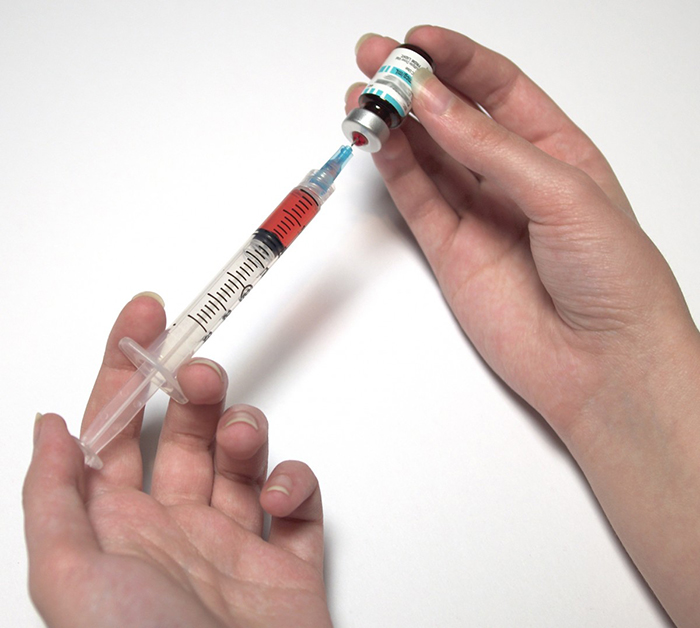
By Jenna Cocullo, Local Journalism Initiative
Chatham-Kent ended the week with 23 individuals recovered from COVID-19 and only two new cases. It may also end the month with a vaccine.
According to Chatham-Kent’s medical officer of health, Dr. David Colby, there have been some “signals from the province” that local health units will soon be getting the COVID-19 vaccine before the end of the month.
The only two vaccines approved in Canada, to date, are those from Pfizer and Moderna.
“I’m in constant touch with Ministry (of Health) officials to try and solidify that. The more we can get and the sooner we get it, the happier I’m going to be. I certainly can guarantee that we have our teams in place and ready to go,” Colby said at a press briefing on Thursday.
As is consistent with the rest of the country, the first doses of vaccines to arrive locally will be administered to long-term care (LTC) facilities.
“It will be administered … in a very timely manner. It’s not going to hang around in the freezer very long at all.”
Ontario is still in Phase 1 of its vaccine rollout plan, expected to last until April. Approximately two million doses will be distributed throughout the province during the first phase. To date, only the biggest problem areas in Ottawa, Toronto, Peel and Windsor have received substantial vaccine allocations, according to Colby.
“But I keep making the point that our seniors are at risk too, and we’re looking forward to getting the programs of vaccine administration in place as soon as humanly possible.”
Health care workers in hospitals, retirement homes, and residents living in remote Indigenous communities are also part of the Phase 1 vaccination plan.
Vaccines will be available widely across Ontario for anyone who wants to be immunized starting in Phase 3, which has no determined date.
Colby said by then he is “quite confident” that all the controls will be in place to smoothly transition into mass vaccination. However, the top doctor is worried members of the public will be too hesitant to vaccinate.
Recently, C-K Public Health partnered with IPSOS on a local survey asking 540 residents by phone how they felt about the vaccine. The survey was conducted from Oct. 22-Nov. 2, before data on the two approved vaccines were announced.
The results found that only 33 per cent of the local population will “definitely” take a COVID-19 vaccine, while 21 per cent will “probably” follow suit. Seventeen per cent are likely to not get vaccinated. The remaining 29 per cent are undecided.
“The most common concerns about the vaccine are around efficacy, safety, feeling it’s too rushed and concerns about potential side effects,” said Rebecca Haskell-Thomas, planning specialist, CK Public Health, told the board of health at its December meeting.
Colby said there is still work to be done in educating and getting the message out to the public.
“Because (vaccine development) is so expensive, almost always pharmaceutical companies will not go to Step B until Step A is completed and they know that there’s a reason to do it,” he explained. “But, in COVID, because the need for a vaccine is so great and the disruption to society is so great and let’s face it, the potential for profits for developing a vaccine is so great, they did all of the steps at the same time. So, companies took a big financial risk doing that but it very much accelerated the development and it’s not that the steps were cut or shortened.”
On Friday the municipal cumulative cases of COVID-19 rose to 844 of which 121 remain active. Four individuals are hospitalized and the death toll continues to sit at three.
Colby said now is not the time to relax pandemic precautions despite the first round of vaccines being potentially doled out in a few weeks. The public is in the midst of the second wave as another strand of COVID-19 was discovered in Canada and mass vaccinations could be months away.
“I’ve said over and over again that when we get enough vaccines to be able to do mass vaccination campaigns, that has the potential to get us back to a more of a pre-2020 kind of life, where we aren’t reluctant to have social interaction or restrictions on our economy. It’s a twofold approach; now is not the time to relax,” he said.
“This is not something that’s going to last forever, it’s temporary but we need to hunker down,” Colby said.






